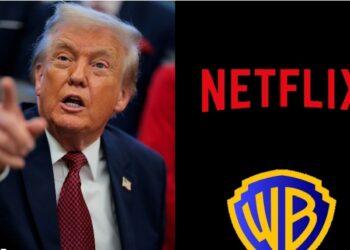Trump Deal Threatens EU’s Image as Champion of Rules-Based Trade
The European Union’s long-cultivated image as the global defender of rules-based trade is facing an unexpected challenge, following a controversial new deal struck with former U.S. President Donald Trump. Analysts warn that the agreement could erode the EU’s credibility as the world’s most vocal advocate for open, rules-driven commerce.
The deal, which centers on selective tariff reductions and preferential market access, was unveiled amid mounting trade tensions. While Brussels has traditionally prided itself on promoting fairness, transparency, and adherence to World Trade Organization (WTO) norms, critics argue that the EU’s willingness to accommodate Trump’s demands signals a sharp departure from its principles.
“Europe has always positioned itself as the moral guardian of global trade rules,” said a senior trade analyst in Brussels. “But by cutting this bilateral arrangement, the EU risks being seen as no different from Washington’s transactional approach under Trump.”
For years, the EU has castigated the United States for undermining the WTO and pursuing protectionist policies. Now, the bloc’s move is being seen as a concession to political pressure, undermining its own message. Many within the European Parliament are voicing concerns, warning that this deal not only compromises the EU’s negotiating strength but also damages its reputation in emerging markets that rely on consistency and fairness.
Supporters of the agreement, however, argue that pragmatism is necessary. They say that without engagement, Trump’s return to influence could trigger a wave of new tariffs targeting European industries, from automobiles to agriculture. “This was a defensive move,” noted one EU official. “It was about protecting jobs and avoiding escalation, even if it meant compromising on principles.”
The fallout is already visible on the global stage. Partners in Africa and Asia, long encouraged by Brussels to embrace WTO rules, are questioning whether the EU is still the reliable standard-bearer it once claimed to be. Trade experts fear that the deal could embolden other major economies, such as China and India, to push harder for exemptions and side agreements, weakening the global rules-based order further.
As the EU seeks to balance pragmatism with principle, its credibility hangs in the balance. The Trump deal may ease tensions in the short term, but the long-term cost could be the erosion of the very values the EU has spent decades defending.











